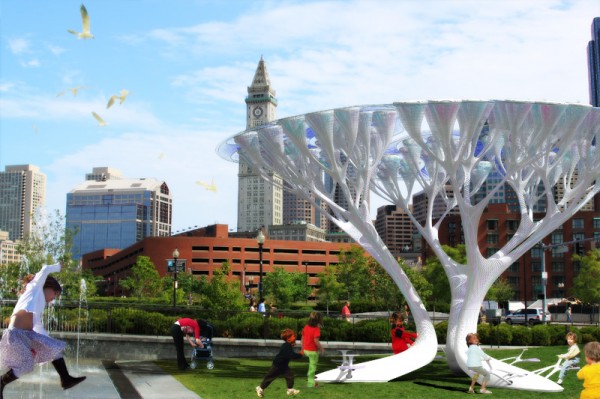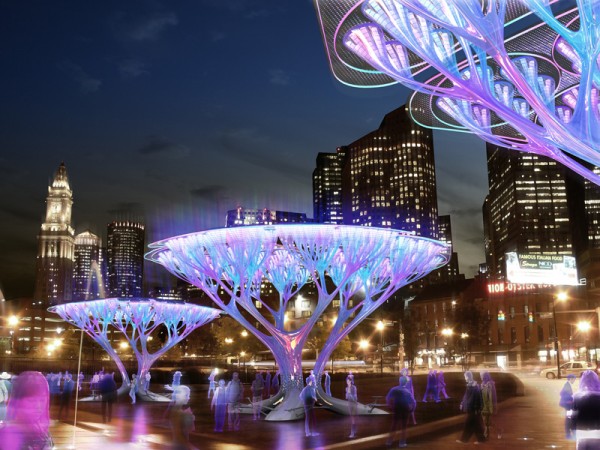Lately I'm busy with yet another workshop at the architectural school, so lots of material is to be expected by next week. In the meanwhile, here's a thought-provoking project that I found on eVolo's website - a website that focuses on innovative architecture. The project is, as the title of this post implies, about an artificial tree.
The interesting thing about this tree, besides it being a pretty litteral example of biomimicry, is that it has vastly superior environmental impacts than that of a normal tree. This artificial creation has the carbon neutralizing effect equivalent to over 100 natural trees! This incredible feat is achieved by various technological elements that are implanted and integrated into the tree structure. Furthermore, the artificial tree is made to fit in the urban landscape, with features such as benches by the roots and a marvelous lighting system during nighttime. The entire system of the tree runs on sustainable off-grid power systems that harvest the wind and the sun. The structure is designed for the city of Boston, and is thought to be built in plenty of numbers, so that the city's polution is minimized, and so the negative impacts of industrial developement can be minimized.
Personally, I think the most interesting topic about these artificial trees, is centered around their possible impact. Let's say that the Boston city council approve construction of these structures, and they turn out as effective as they are assumed to be on paper and drawing. What if this concept spreads around the world. Sure it will be a postive thing, being able to neutralize carbon so easily, while also adding beautifaction to global metropolises, but is it ethically right? I'm a very open-minded person regarding many contemporary subjects and as in this example, also technology. But the ability of being able to create trees, that are more effective than real-life trees, won't that be a bit of a problem? I imagine cities cutting down "the old trees" to build such ones. Imagine the urban landscape without any actual vegetation, but rather boulevards of artificial robo-trees. Such a development could lead to extinction of wildlife in urban areas, and with time, even justify massive woodcutting in the developed world, as well as the more fragile parts, such as the rainforests. My vision may be pretty exagerated, but then again, the world developes quickly, and you never know what might happen.
Further reading:


